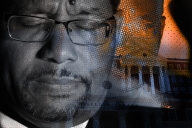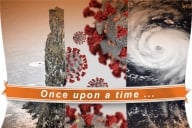You have /5 articles left.
Sign up for a free account or log in.
My first “real” job was as a cashier at McDonald’s during my junior year of high school. Fast-food work was as one might expect: repetitive, dirty, unfulfilling -- but all of this was made worse by the interactions with customers who demanded service without ever making eye contact.
Later, I experienced this theme in my years of work as a retail clerk at a home improvement store where I became, alternately, the public’s whipping boy and an object of derision and/or desire. To be treated as a worthless and expendable member of society is, unfortunately, all too common in service-industry jobs, but this culture has now infected higher education classrooms.
The only indication of this coming epidemic that I had as a graduate student teaching composition courses at a state university was the time an 18-year-old male student who was caught plagiarizing sputtered at me, “I’ll have your job!” Since I was already two degrees ahead of him, I knew this wasn’t meant literally. But even the figurative notion of a just-graduated high school student destroying everything for which I had worked was chilling. I brushed it off and moved on.
As an associate professor of English at a community college and after nearly 14 years now in the profession, I feel that I have come full circle. I’m not the revered professor I always saw in my own higher education mentors. Instead, for students, I am the nameless worker standing by the drive-through window asking robotically, “Would you like fries with that?”
So who is to blame for this transition from sage on the stage to on-commission customer service representative? In some ways, it begins with the students who come from homes where parents are used to demanding impeccable “service” (not teaching) of their children’s educators. The modern, traditional college student has come of age in an environment in which their K-12 teachers garnered little respect. Educators had their autonomy stripped from them by state- and national-level governing bodies -- people with little (if any) classroom experience -- making the decisions about what can and should occur in the classroom.
This stifled educational environment, replete with demanding parents encroaching upon their child’s school day and demanding good “service” of the schools, has not gone unnoticed by our current generation of students. In fact, it has laid the groundwork for students’ dismissal of professors who appear as a mere extension of their oft-battered high school teachers. Add into this witch’s brew the burgeoning overlap between high school and college -- with programs like dual-enrollment classes and early-college high schools -- and one should not be surprised that young college students have a difficult time discerning between the two environments.
Moreover, this desire for “service” is more than an extension of the now-trite conversation about the me generation. Sure, young people today do want automatic, well, everything. For example, I carry a very heavy grading load with, on average, four writing classes filled to capacity every semester. This means that grading turnaround for papers is never instantaneous, but that doesn’t stop students from asking, sometimes before the paper has even been submitted, when they will know their grade.
Further, most professors check email from home and on weekends, so many are familiar with some version of the following message: “Hi. I need to see you in the morning. Can you let me know now if this is OK?” With office hours beginning at 8 a.m. and the email arriving near midnight, the expectation is that I am checking my messages at all hours and should answer in time for the student to leave and arrive at my office by the requested hour. Answering that email close to midnight -- and often I do just to stay ahead of the workload -- could be the major problem. In short, am I enabling the “right now” generation?
Sometimes I believe that students no longer view professors as human beings with lives and families. We are not people who require sleep and food to persist; we should be available at all hours and willing to pick up a late shift if needed. We are service-industry workers.
Yet there is still something more to this quandary. Years ago, there was a heated discussion at a meeting on my campus: Should we now refer to students as “customers”? Kowtowing to this term would mean that faculty must now be in the business of serving students’ every whim and desire. These customers would, of course, always be right; that is the traditional model for customer service, after all.
Recently, my college implemented mandatory advising sessions. This means that student must speak with their faculty adviser before registering for classes. Failing to do so would keep them from getting their holy grail: a PIN that grants them access to the registration system. In a perfect world, that would mean more accountability for students and better guidance from faculty members, but what transpired was something far more nefarious. Horror stories abounded regarding students demanding their PINs at all hours of the day. Sometimes students claimed that they were “too busy” to meet so could we “just go ahead and email the PIN?”
The worst illustration, however, includes an email that I received from a student on Christmas Eve who “never got around to meeting” during the semester; thus, their PIN was needed “right now.” Fairly complicit in my service-industry assimilation, I read and responded to this email while wrapping Santa presents for my kids. I was, in short, being called in to cover a shift.
I could just as easily hand the answer to these student demands over to them as fluidly as I passed those thick chocolate shakes through a sliding glass window. It is the type of instant service the students expect, yes, but I find myself pausing because I know something to be true: beyond students’ desire for a quick fix is something more malevolent yet.
In a 2017 NPR article entitled “Why Expertise Matters,” Adam Frank discusses the trend to discredit experts, noting, “While the democratization of knowledge is great, it's threatened by the strange insistence that every opinion has equal weight.” We have given everyone equal access to higher education, especially in my state, where the Tennessee Promise scholarship and Tennessee Reconnect grants offer traditional and nontraditional students free community college tuition. The youngest of these students have been raised on social-media comments sections -- a brutal environment where everyone becomes an armchair philosopher, a politician and a scientist. Mix with this a current milieu under a presidential administration that not only does not value literacy and expertise but also flagrantly works against it, and we have come into a dark new era for professors: our expertise no longer matters. Like the service-industry worker, we are dismissed as expendable cogs in a business model visioning of higher education.
This past year, I’ve had 18-year-old students make comments like, “This doesn’t look like an F paper to me. I think you need to look at it again.” The notion that a student of any age who hasn’t finished his or her education would make such an ostentatious comment to a professor might have been unheard-of in a different time and place, but here we are in 2019 -- worlds away from the days of reverence and appreciation for expertise.
So, as self-preservation, should we all hone our customer-service skills? Should we offer to supersize and add incentives to all of our lectures? Do we begin to roll beverage carts through our classrooms, no longer symbolically but literally quenching the thirst of young minds? If so, then I quit.








